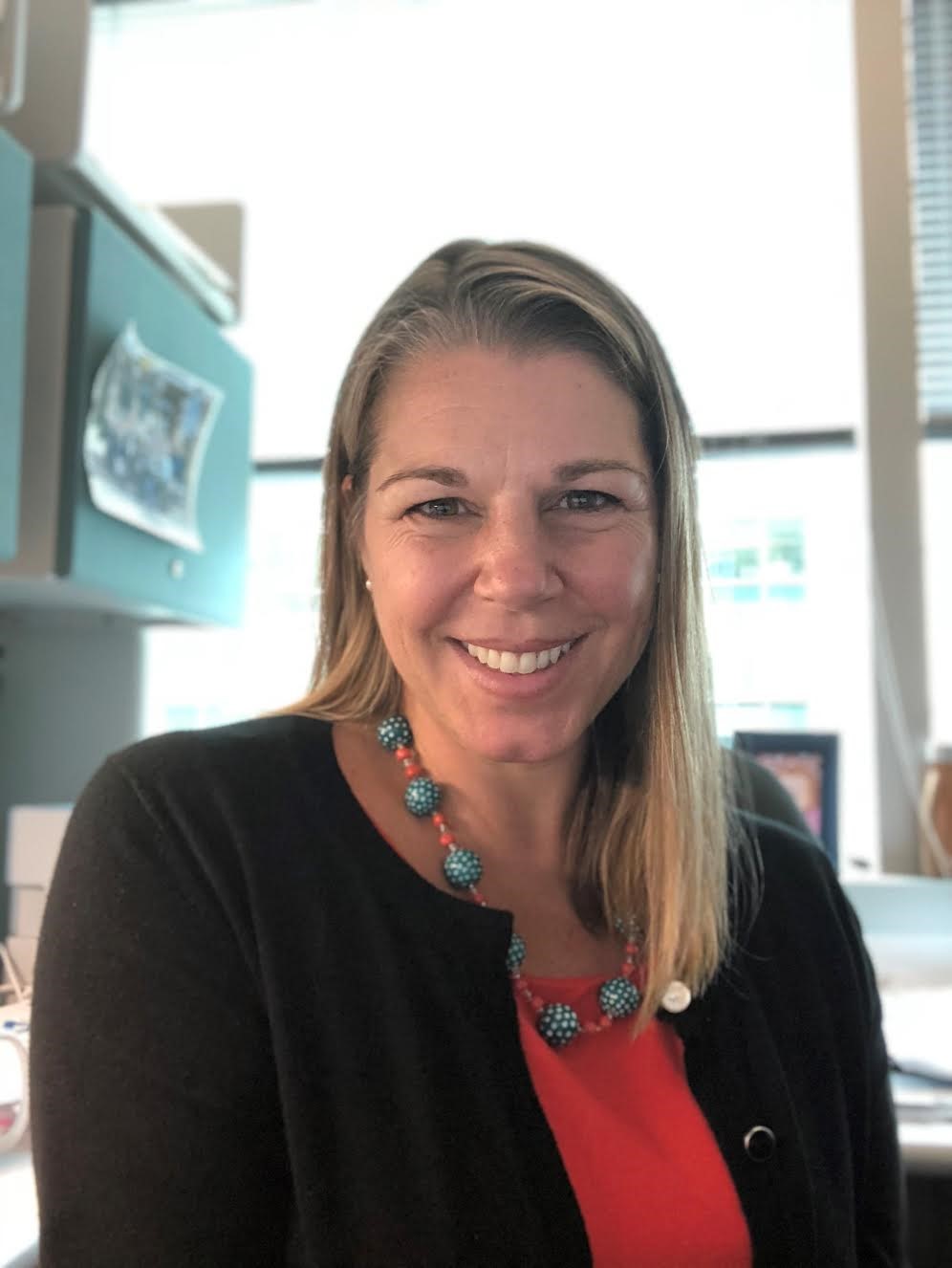JHSPH Alumni Profiles
Dr. Allison Brown, MPH, PhD
 Allison Brown MPH, PhD is currently the Team Lead for the Antimicrobial Resistance Capacities and Special Studies Team in the Division of Healthcare Quality Promotion at the Centers for Disease Control and Prevention (CDC) and an adjunct professor at the Rollins School of Public Health at Emory University. She received an MPH from the Yale School of Public Health in 2004. Next, she completed her doctoral studies at the Johns Hopkins Bloomberg School of Public Health in the Department of Molecular Microbiology and Immunology studying immune responses to viral vaccines in the offspring of parasitized hosts with Drs. William Moss and Diane Griffin. Following her dissertation, she served two years as an Epidemic Intelligence Service (EIS) Officer at the CDC.
Allison Brown MPH, PhD is currently the Team Lead for the Antimicrobial Resistance Capacities and Special Studies Team in the Division of Healthcare Quality Promotion at the Centers for Disease Control and Prevention (CDC) and an adjunct professor at the Rollins School of Public Health at Emory University. She received an MPH from the Yale School of Public Health in 2004. Next, she completed her doctoral studies at the Johns Hopkins Bloomberg School of Public Health in the Department of Molecular Microbiology and Immunology studying immune responses to viral vaccines in the offspring of parasitized hosts with Drs. William Moss and Diane Griffin. Following her dissertation, she served two years as an Epidemic Intelligence Service (EIS) Officer at the CDC.
In my current position, I lead a team of microbiologists, epidemiologists, and physicians who are dedicated to improving domestic and international capacities for detecting and characterizing highly resistant healthcare-associated infections. We work to develop, adapt, and evaluate new diagnostics to improve surveillance for these resistance threats. We analyze data on clinical specimens tested by the Antibiotic Resistance Laboratory Network to help respond to new resistance mechanisms and trends. We also conduct applied research to better understand the molecular microbiology and epidemiology of resistant pathogens and resistance genes.
For more information:
Antibiotic Resistance Isolate Bank
Antibiotic Resistance Laboratory Network
Yes and no. I choose this career because I wanted to help people, and I was always interested in science and health. I read all of the books and novels that everyone reads when they are obsessed with public health, like The Hot Zone. I was looking for a crossover of science and epidemiology, with a global hint. I was obsessed with parasites and vaccines and how the body reacts. Halfway through my Masters degree, I realized I wanted more training and education so that I could understand the biological basis for data and decisions. I was an older student than my peers at the time, so I came in knowing what I wanted to study. I just needed to find someone to give me that opportunity and autonomy. When I was looking for positions after graduate school, working for the federal government really appealed to me. I was not sure what the position was, but I knew I would recognize it when I saw it. Only after learning more about the opportunities at CDC and EIS in graduate school did I choose to do EIS after grad school.
It was a pretty smooth transition since I was in a training fellowship as part of EIS. This fellowship brought together people with diverse backgrounds, interests, and expertise, and provided us with the skills necessary to work at the CDC. By that time, I was sure it was the right fit for me. I knew that traditional academia was not correct for me, but CDC is an academia-like atmosphere.
There isn’t any part of my career that is only available to U.S. Citizens. Title 42 positions are a good entry for non-citizens and citizens. Visas are supported for international scientists and more information can be found here.
For public health in general, training in the fundamentals is necessary. Epidemiological methods and coding are essential skills. Beyond that, it is really about understanding surveillance and bioinformatics. These skills allow candidates to stand out and thrive. Big data is also heavily relied on and there are a lot of programs out there that make people qualified for public health. To qualify, you do not have to have an explicitly public health education. There are a lot of skillsets that are needed to achieve public health goals (i.e., microbiology, informatics, epidemiology, biostatistics, communications, public policy, program evaluation, and more). Local and state public health agencies also provide a very rich experience and training in public health. Like CDC, they also provide opportunities in a lot of different topic areas and you can reinvent yourself by changing topic areas and/or locations.
Continue to consider opportunities as they come and take the path that is right for you and don’t think that there is only one map to follow. A lot of people think there are set ways to get to their goal. A better way to think of it is to follow a more personalized path. Be open to opportunities that are different than what you have imagined and choose the opportunities that will match you with the right people, those who will provide the most rich experience and education.
My doctoral studies had a very rigorous core curriculum that forced me to learn and master things quickly (which I think sets people up well for success) but I also had a lot of autonomy during this time. I was able to take a variety of additional classes to enrich my experience. This allowed my time to be as [tailored] as possible. Taking projects from the inspiration stage to the completion stage was essential. I also learned to fight for myself and communicate more clearly. I felt supported enough that if I had a crisis, I could have faculty intervention or support, but I was free to figure a lot of things out myself.
My ability to master new skills quickly served me well as I transitioned to EIS, which uses a “see one, do one, teach one” education model. There are a lot of things you can read about, but doing things for real—with real world outcomes and implications—helps you learn fast. One of the most important things I learned on the job was how to communicate findings. Not just the results but their significance and what actions people can and should take as a result.
Having an impact on society and finding ways to make things better. Improving knowledge of a topic and making others aware of that knowledge. Working with the right people, who are passionate about their jobs and excited to come in everyday, makes a big difference too.
My favorite part of my job is working for a public health agency. Everything that we do is ultimately applied. Finding something and getting it out for public consumption to affect policy changes and regulation as fast as possible is rewarding. Seeing the impact our work has is really satisfying. In academia there can be a delay, but in public health you find something, act on it, and get it out there.
Leading a large team with a diverse portfolio of high priority activities can be demanding. But guiding scientific strategies, setting research agendas, informing public health policy, and mentoring are all aspects of my job that I love.
A job in public health is conducive to various personalities, but the more you put into it, the more you get out of it. You’ll find a lot of “overachievers” in public health. People who put in long hours and are not seeking the limelight, but who measure success by their impact on science, public health, and people’s lives. (That said, make no mistake there are plenty of opportunities for publishing and gaining notoriety!) There do not have to be long days. In fact, most are able to fit their work in to a 9-5 day. But there are people who choose to work longer hours because they love their jobs and there is always more to do.
Your destiny is not determined by your title or your degree. Skills are transferable. If you are passionate, you will be successful.
Thank you again to Dr. Allison Brown for her time in conducting this informational interview.
This interview was conducted by Sabrina Schatzman, a PhD candidate in the Department of Biochemistry and Molecular Biology, in collaboration with the Professional Development and Careers Office at the Johns Hopkins School of Medicine.
